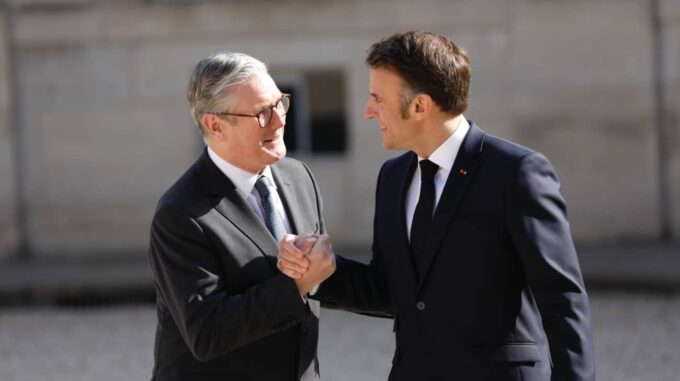Changes in the Diplomatic and Political Approaches of the Dictator: Macron and Starmer’s Role in Convincing Trump Regarding Putin

In an unexpected turn, U.S. policy towards Russia has experienced significant shifts. According to reports by Politico, French President Emmanuel Macron and British Prime Minister Keir Starmer acted as catalysts in persuading U.S. President Donald Trump to stop ignoring or downplaying the significance of Vladimir Putin personally. This was the result of prolonged, behind-the-scenes diplomatic efforts that lasted several months and aimed to alter the rhetoric and stance of the American leader towards the Russian leader. Sources who requested anonymity and who are affiliated with European governments indicated that Trump’s change in rhetoric was a consequence of coordinated efforts by the UK and French governments, which persistently urged their American counterpart to ease pressure on Ukrainian President Volodymyr Zelensky and, at the same time, to focus more attention on Putin. It was a challenging diplomatic process, but the argument that the Russian leader supposedly exposed him as a fool through public criticism and disrespect played a crucial role in convincing Trump to adjust his approach. According to these sources, during consultations in London and Paris, efforts to persuade the U.S. president were coordinated by UK National Security Advisor Sir Stephen Pinter and Defense Secretary Joni Hili. They worked closely with UK Ambassador to the U.S. Mark Burnett. UK Foreign Secretary David Lemmie reported that he had conducted 13 conversations this year with U.S. Secretary of State Mark Rubio as part of this diplomatic campaign. Similarly, Starmer and Trump had “almost” as many discussions, emphasizing the importance of this communication channel. London and Paris unanimously highlighted that Putin demonstrates disrespect towards the U.S. and Zelensky, systematically violating agreements and ceasefires that he himself announced. The human factor was of particular importance to European diplomats: it turned out that Trump is especially sensitive to human casualties, making it even clearer to him that Russia under Putin’s leadership does not deserve trust. When well-known European diplomats and analysts assessed the situation, they emphasized that after months of silent or “soft” policies, Trump began to realize the nonsense in which Putin’s use of his personal neglect of certain aspects has almost become an immediate threat. A French diplomat, who wished to remain unnamed, stated that Macron and Starmer's strategy is to convey to the American leader the message: trust in Putin is misplaced, as he not only disregards U.S. interests but also actively exploits this indecisiveness for his own purposes, which could have devastating consequences for global security. Analyzing this diplomatic effort, analysts warned of a potential risk that Trump’s altered policy could be temporary and change quickly—especially amid the escalating internal political situation in the U.S. Senior analyst at the Brookings Institution, Steven Pifer, noted that Trump previously had a “blind spot” regarding Putin—a failure to respond to pressures and ignoring U.S. requests. At the same time, his recent social media statements hinted that Trump has begun to realize that the Kremlin and Russian interests are abusing his trust and are using the situation to their advantage. Thus, although the diplomatic campaign initiated at the European level has already yielded some results in shifting Washington’s course, the pressing question remains—how long will this strategy last, and can it fundamentally change U.S. foreign policy towards Russia overall? At the same time, it is essential to remember that policy is paramount—every step toward strengthening or easing sanctions, trust or mistrust can have far-reaching consequences both for Ukraine and for global security as a whole.

